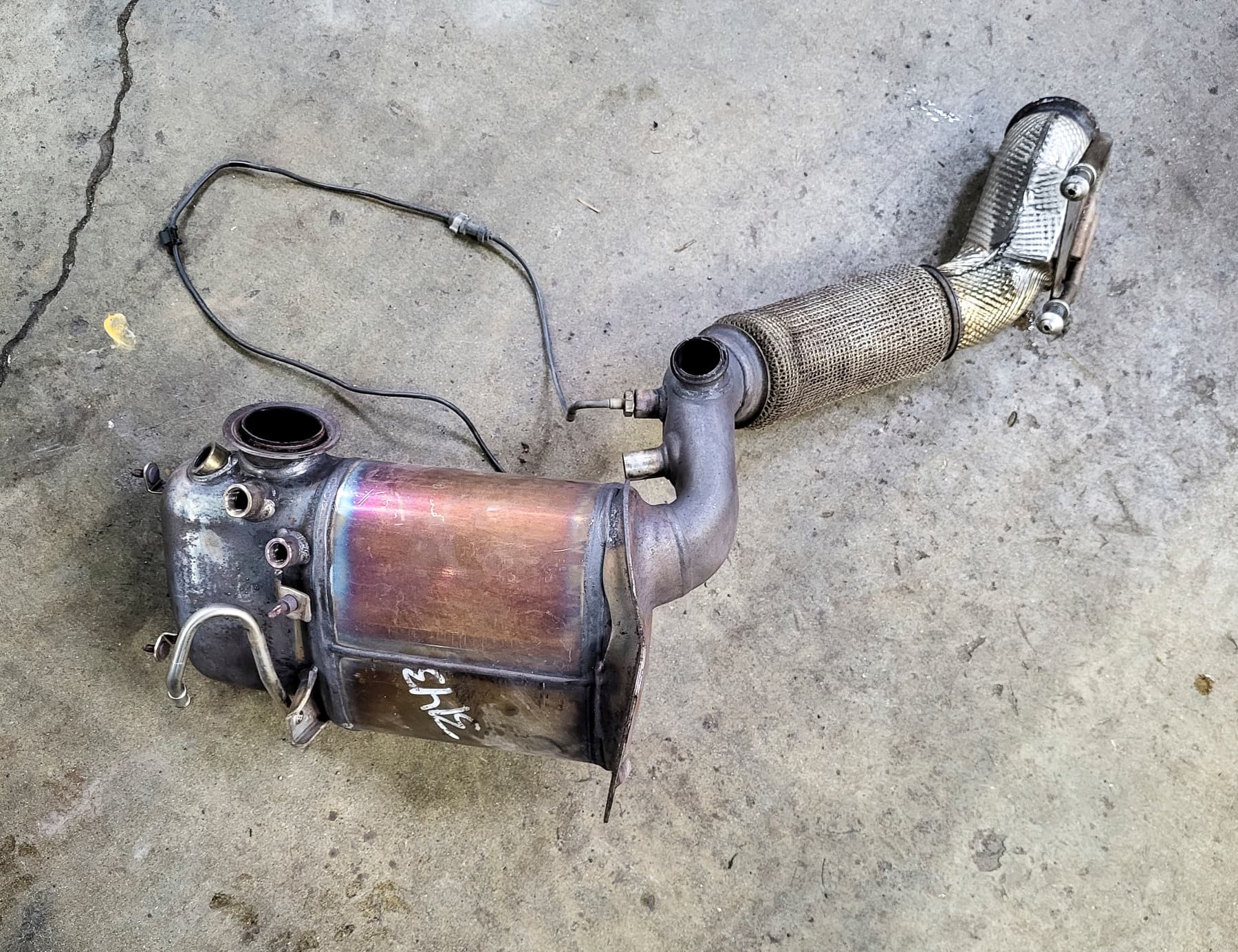The Volkswagen Jetta TDI is known for its fuel efficiency and performance. However, one crucial component that requires attention is the diesel particulate filter (DPF). This article delves into the Vw Jetta Dpf, its function, replacement process, and tips for extending its lifespan.
What is a VW Jetta DPF?
A DPF is designed to trap harmful soot particles emitted from the diesel engine’s exhaust. These microscopic particles are known carcinogens and contribute to air pollution. The DPF captures these particles, preventing them from entering the atmosphere. Over time, the trapped soot undergoes a regeneration process, converting it into harmless ash. This process involves injecting extra fuel to increase exhaust temperatures, burning off the accumulated soot.
VW Jetta DPF Problems and Symptoms
A clogged or malfunctioning DPF can lead to various issues, including:
- Reduced Engine Performance: A blocked DPF restricts exhaust flow, causing decreased power and acceleration.
- Check Engine Light: The engine control module (ECM) will illuminate the check engine light when DPF issues are detected. Diagnostic trouble codes (DTCs) related to the DPF or EGR system will be stored in the ECM’s memory.
- Increased Fuel Consumption: A clogged DPF forces the engine to work harder, leading to higher fuel consumption.
- EGR System Issues: Excessive soot buildup in the DPF can also affect the Exhaust Gas Recirculation (EGR) system, leading to further problems. The EGR filter, a pipe connecting the DPF outlet to the EGR valve, can become clogged with soot, disrupting EGR flow.
VW Jetta DPF Replacement
When a DPF becomes excessively clogged, replacement is often the most effective solution. While cleaning is an option for larger vehicles like trucks and buses, it’s generally less effective for passenger cars like the VW Jetta. Cleaning might provide temporary relief, but the problem often reoccurs sooner than with a new DPF.
Replacing the DPF is a labor-intensive process, often requiring lowering or removing the subframe for access. The replacement typically involves the DPF assembly itself, including an integrated temperature sensor. The EGR filter, a pipe connecting to the EGR system downstream of the DPF, might also need replacement if clogged with soot.
 2010 VW Jetta TDI DPF Replacement
2010 VW Jetta TDI DPF Replacement
Image: A replaced VW Jetta TDI DPF unit. The inlet (from the turbocharger) and outlet (to the exhaust system) are visible, along with the connection point for the EGR filter.
Extending the Life of Your VW Jetta DPF
Several factors influence DPF longevity:
- Driving Habits: Frequent short trips, primarily city driving, are detrimental to DPF health. The engine doesn’t reach optimal operating temperature for effective regeneration. Longer highway drives allow the system to heat up sufficiently, facilitating the soot burning process.
- Regular Maintenance: Frequent oil changes and proper engine maintenance contribute to overall DPF health.
- Load and Driving Conditions: Hauling heavier loads and driving at higher speeds generate more heat, promoting DPF regeneration.
VW Jetta TDI Reliability and Warranty
While the VW Jetta TDI’s engine is generally reliable, DPF issues can arise, especially in older models. Volkswagen extended the warranty on these vehicles for a certain period (often 10 years) to address potential problems. It’s crucial to check the vehicle’s warranty status before purchasing a used Jetta TDI.
Conclusion
The VW Jetta DPF plays a critical role in reducing harmful emissions. Understanding its function and maintenance requirements is crucial for owners. By adopting appropriate driving habits and adhering to maintenance schedules, you can extend the life of your DPF and avoid costly repairs. If you suspect DPF problems, consult a qualified mechanic specializing in VW TDI repair for diagnosis and solutions.
